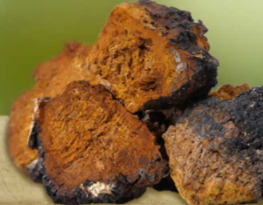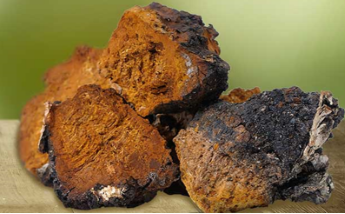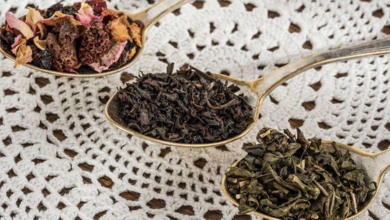Are Chaga Mushrooms Safe for Children?


Chaga mushrooms (Inonotus obliquus) are a species of functional mushroom, which means they are used for their beneficial health properties. Chaga is a mushroom that thrives on birch trees in Northern Europe, Asia, and North America; it has been used in Siberian folk medicine for centuries.
This fungus is unique looking because it contains large amounts of melanin. When exposed to sunlight, it can turn a vivid black, looking almost burned. Although they don’t seem appealing, these fungi have a lot to offer human health. Traditional folk practitioners knew this, hence why they used the mushroom to make tea to promote healing.
Alongside other functional mushrooms, chaga has become popular recently. Many individuals take this mushroom daily to promote overall health and wellness. However, this begs the question: is chaga safe for kids?
In this brief guide, we answer this question and more.
What Are Chaga Mushrooms and What Do They Do?
Chaga mushrooms have numerous potential health benefits. Since they contain high quantities of melanin, they are super high in antioxidants. Melanin has one of the highest oxygen radical absorbance capacities (ORACs) of any food; this is a measure used by the National Institutes of Health to determine antioxidant capacity.
Antioxidants can counter oxidative stress, which can mean tackling inflammation and more. This can have a beneficial knock-on effect on numerous inflammatory conditions.
Furthermore, chaga may be able to reduce blood sugar levels and lower cholesterol. Once again, its anti-cholesterol effects could be due to the antioxidants present in chaga.
This fungus has also previously been termed the “cancer mushroom” because it is thought to prevent and slow the growth of cancer. Notably, most of this research has been done on mice. However, one test-tube study suggested that highly concentrated extracts of triterpene (an antioxidant found in chaga) could kill cancer cells.
It’s worth remembering that the majority of studies on fungi have been performed on animal or test tube models. As a result, it’s unclear how well they work on humans, but many users of mushroom supplements say that they have found success.
Can Children Take Chaga Mushrooms?
In general, those who want to benefit from functional mushrooms use products that are easy to take on a daily basis. It’s common to take chaga mushroom capsules to reap the benefits of this fungus on overall health and wellness.
While adults are commonly taking these supplements with no issue, many parents are wondering whether it’s safe to give them to kids. After all, the typical supplements marketed at kids are sugar-filled gummy vitamins that aren’t all that healthy.
So, can you give chaga supplements to children?
The answer is yes, sort of. Chaga should never be given to children under the age of ten, as there is a higher risk at this stage of development. It is a good idea to avoid supplements in general at this age.
The other caveat is that it’s always recommended to consult your child’s pediatrician prior to giving them supplements. There may be potential side effects or reactions with other medications, so it’s essential for the pediatrician to know and give advice.
If you decide to go ahead with chaga supplements for your child, it’s vital to be aware of potential side effects.
Chaga Mushrooms Side Effects
There are a couple of side effects associated with chaga, even though this mushroom is typically well-tolerated in humans. Additionally, the lack of data on humans means that there is no recommended dosage.
It’s best to exercise caution when trying any new supplement for the first time. In the case of giving supplements to your child, it’s advised to give them a low dose at first and keep an eye on them, checking often how they are feeling.
There are a couple of groups who should avoid chaga supplements due to medications. This includes:
- Those with diabetes: Chaga can interact with insulin, which means those with diabetes should exercise caution.
- Those on blood-thinning medications: A protein in chaga can prevent blood clotting. As a result, those using blood-thinning medications need to be careful with chaga.
- Those with autoimmune disorders: The reduction in inflammation caused by chaga can cause the immune system to become more active. The result can be harmful to those with autoimmune diseases, who should consult a doctor before using chaga.
Can Women Who Are Pregnant/Breastfeeding Take Chaga?
There have been no studies to date on the use of chaga in pregnant or breastfeeding women. As a result, its safety profile is unknown.
In this instance, it is best to err on the side of caution and avoid taking chaga if you are pregnant or breastfeeding.
Final Thoughts: Is Chaga Safe for Kids?
In general, chaga supplements are excellent for boosting daily health and wellness – in both adults and children. That said, there are a few caveats. Parents should not administer chaga to children under the age of ten. Furthermore, parents should always consult a pediatrician before using chaga, as this fungus can cause side effects and interact with some medications.
Remember that chaga is under-researched in humans, so users should always exercise caution. For best results, always buy chaga supplements from a reputable brand that provides information on its products and safety procedures.





